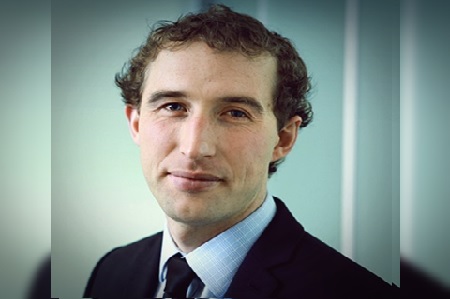Every lawyer secretly wants to be a part of a legal first and Joseph Lill, Senior Associate from Chapman Tripp, has done just that. He was part of the legal team that successfully defended a workplace prosecution for the first time under the Health and Safety at Work Act 2015.
He started his health and safety career as a Department of Labour prosecutor before moving to private practice. He now works with Garth Gallaway at Chapman Tripp supporting clients during workplace investigations and prosecutions.
During his presentation at #COHSF2020 he gave us an update of the legal landscape. The general themes were:
1. Judicial Decision Making: Judges are engaged and most understand that businesses cannot work under a set of absolutes. More cases are being defended and there will be plenty to watch in this space this year.
2. Reparation Payments: Reparation payments have increased. In part this reflects the addition of the ACC shortfall over the past few years; that is the Courts now order payment of the difference between a worker’s pre-accident wage and what they receive on ACC (80% of pre-accident wage). At the high end if a worker who has had a fatal accident has an infant the business owner can be directed to pay the family up to 20% of the worker’s wage (net) for 18 years. Businesses are now taking steps to make sure this payment is made from the outset which is taken into account by the Court at sentencing.
3. Fines: The use of accountants to provide evidence about the maximum level of fine is now common. It is the defendant that has to provide the Court with this evidence. Courts will adjust fines to suit a company’s circumstances and have made it clear they do not want to put companies out of business!
4. Reasonably Practicable: The legal analysis hasn’t significantly changed with ‘all practicable steps’ becoming ‘so far as is reasonably practicable’. Business owners are expected to take the time to understand the critical risks associated arising from their work and manage them.
5. Slow down: If something happens, once you have made sure everyone is safe remember to slow down. WorkSafe don’t need an instant response and, as long as you work within the statutory timeframes, there is no need to panic.
The COHSF committee would like to formally thank Joseph for taking the time to come and speak to us about HSE legal issues and how businesses can manage their legal duties.
QUICKFIRE QUESTIONS
1. What has been the highlight of your working career?
Being part of the first defended prosecution under HSWA
2. What has been the hardest decision that you have had to make during your working career?
Who to prosecute when I was working on ‘the other side’.
3. What was the hardest lesson that you have had to learn?
Sometimes you can’t stop what you have started, you just have to go with it
4. If you could go back to your first year in your professional role, what advice would you give to your younger self?
You can’t know it all; and that is ok
5. What advice would you give to people starting out in their health and safety career?
Be ready for (and open to) constant learning
6. What is the key message from your presentation?
Slow down and think, when it comes to WorkSafe you don’t have to respond immediately
7. What is the one thing you would like the audience to do when they leave the conference?
Relax, also thinking through what the first steps would be if you did have a serious accident is much easier to do now rather than after the event.
GET IN CONTACT
Website: www.chapmantripp.com
Email: joseph.lill@chapmantripp.com
LinkedIn: www.linkedin.com/in/joseph-lill
